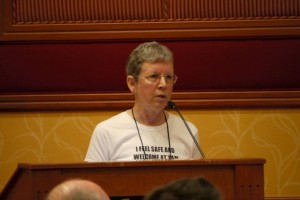Kausik Datta has an incisive post on Ayesha Nusrat’s op-ed in the New York Times about how liberating it is to submit to a religious obligation to wrap your head and neck in a large bandage.
Clearly, to Ms. Nusrat, the hijab is merely a few yards of cloth. For far too many women in far too many countries (for instance, the Middle East, North Africa, Far East and the Southeast of Asia, not to mention, Europe), the hijab is an obligatory article of indenturement that permits no choice, but is to be worn on pain of punishment and/or death; to them, it is a symbol of systematic oppression.
A symbol and the reality, which is why it’s so infuriating when people try to dress it up as the opposite. A putative religious obligation can’t be liberating.
Has Ms. Nusrat ever considered how/why Islamic fundamentalists (be it Taliban, or Boko Haram, or the regime in Iran) ALWAYS impose the hijab, burqa or niqab on women at the first opportunity? Why does she think that is?
Because Islamic fundamentalists want to liberate women! Wait…
I find it odd that it seems to have never struck Ms. Nusrat that these inviolable mandates to cover up reflect the bleak reality of so many women’s lives. She glibly talks about a ‘misconception that Muslim women lack the strength, passion and power to strive for their own rights’; she frames it wrongly. As women, the Muslim women lack nothing; they are just as strong and passionate about striving for their own rights as women anywhere else. But Islam is something else. Islam, especially fundamentalist Islam, actively denies them the power, and would rather beat the women into submission than relinquish control – and that is not a misconception, judging by the experience of many, many women in the world. If Ms. Nusrat continues to dismiss their experience because of her beliefs, she is being dishonest.
Read the whole thing. It’s admirably indignant.


